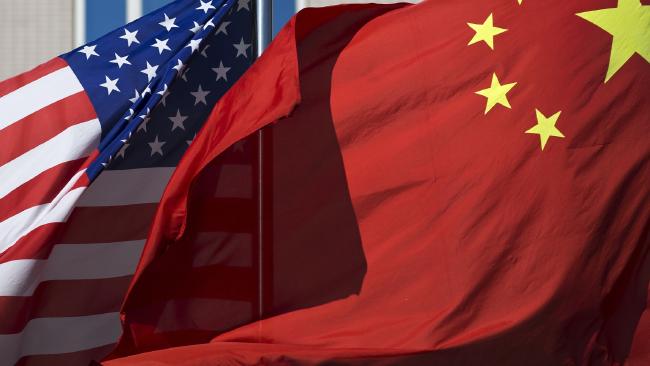
Trump Must Trade with Allies if He Wants to Challenge China
By Melinda Wood, ASP Adjunct Fellow
It’s no secret that China has been expanding its presence in the South China Sea. Time-delay satellite photography of what began as tiny, uninhabitable atolls, reveals remarkably quick development into islands complete with roads, ports and airstrips. The Pentagon estimates China has added more than five square miles of land since 2014. The rapid pace of expansion into waters contested by six neighboring territories led the International Court of Arbitration to rule last September that China’s construction was illegal. The decision was swiftly dismissed by the Chinese government, and construction continues.
President Trump has indicated an early willingness to challenge China, both via his rhetoric condemning the county’s economic practices, and through his calculated decision to accept a phone call from Taiwan’s Premier in early December.
Yet at the same time, Trump’s mindset is decisively inward-looking, with domestic policy concerns far outweighing his interest in foreign ones, and a desire to retreat from international commitments such as the UN, NATO and the Trans Pacific Partnership (TPP).
The decision to withdraw the US from the TPP trade agreement with eleven of China’s neighbors misses the role of third countries in the US’ relationship with China. During a decade of rapid trade expansion, China’s trade with ASEAN countries has increased threefold, and trade with Latin America has increased more than twenty-fold, while trade between these countries and the US has remained relatively static. Eight of the eleven TPP partners already have Free Trade Agreements with China, with only the NAFTA countries and Japan excluded.
In concert with its strengthening economic and military footprints in the Asia-Pacific region, China has become more assertive in employing its economic leverage to sway other governments’ decision making. While China is far from alone in its practice of buying influence through foreign investment, its approach has become noticeably more assertive. In 2016, sources closely linked to the Chinese government publicly threatened Singapore, Australia and New Zealand due to their support for the Tribunal decision on the South China Sea (as non-claimants to the case).
Meanwhile, Filipino President Duterte’s explicit foreign policy reversal away from its traditional US ally towards former adversary China has been cast by Chinese media in light of the potential economic cost of challenging China’s expansion in the South China Sea. And the US’ ability to censure Malaysia for corruption at the highest level of government, revealed by the US Justice Department earlier this year, has been significantly undermined by Malaysia’s response: it has turned to its top trading partner, China, for a comprehensive new defense deal.
As Chinese economic leverage in the Asia Pacific region continues to increase vis-à-vis the United States (as it will with the impending conclusion of the Chinese-led Regional Comprehensive Economic Partnership, or RCEP), other traditional allies will be less willing to back the United States when it clashes with China. If President Trump intends to continue challenging China while simultaneously withdrawing from trade with China’s neighbors, the US may find itself very isolated.






A fortress America policy, which seems to be at the heart of the Trump administration, is certainly going to be challenged by other parts of the world. As the article points out, China is not only a new economic power but it is increasingly looking to become a political world power. Its territorial ambitions at present are mainly limited to either a position of honour (e.g. the Senkaku islands) or one of economic advantage (e.g. potential oil field control). However, the South China Sea actions also introduce strategic impacts and in particular in relation to its nemesis, Japan, by way of controlling a major trade route to that nation. If the Trump Administration moves to disadvantage its heretofore eager and (largely) compliant trading partners then it does indeed open the door to other international hegemonies to move in.
The Philippines is good reference. Traditionally, an American oriented nation, it is now exposed to China as a growing major power in its own backyard. We can expect the carrot and stick approach to be applied to The Philippines by China while the Trump promulgations(if carried through, although Twitter pronouncements can hardly be taken as policy) are likely to either isolate it economically or threaten it militarily (indirectly because of its proximity to China and its strategic location in that part of the world).
The economic arguments from a fortress America policy cannot but affect other “true-blue” allies such as Australia and New Zealand which historically look to the US but which are increasingly dependent on China for their economic well-being and which are adjacent to the Asia Pacific region.
Europe of course falls between the USA and Russia geographically and culturally. Russia is in the dog-box at present but the more the US disadvantages Europe then the more the other trading blocs become appealing, including China.